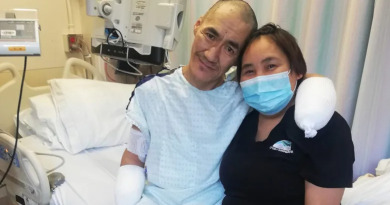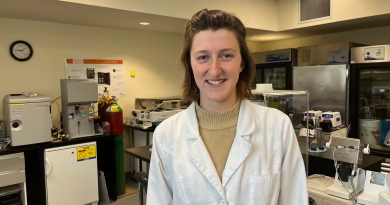N.W.T. residential school survivors, descendants head to Edmonton for papal visit
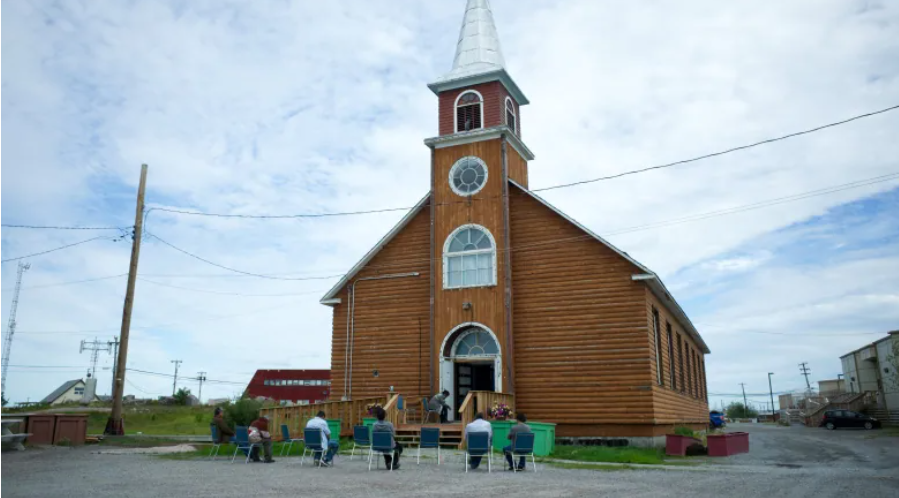
The residential school system has been a large part of Mabel Brown’s family story.
At six years old, her mother was sent to St. Peter’s Indian Residential School in Hay River, N.W.T.
Brown herself also attended residential schools along with her eight siblings. She bounced around from Stringer Hall in Inuvik to Bompas Hall in Fort Simpson, and then to Akaitcho Hall in Yellowknife where she eventually graduated.
And that has left a lasting impact on her family to this day, according to the Inuvik resident.
“When I got triggered, it went on to my daughter and then trickled down to my grandson who is 25 right now,” said Brown who is Gwich’in.
“So the evidence is there. You can see the way we are, our behaviours and how we walk through life, the struggles that we had, and the difficulties that we had — difficulties sometimes in learning, difficulties in relating to one another, difficulties in marriage, difficulties with alcohol.”
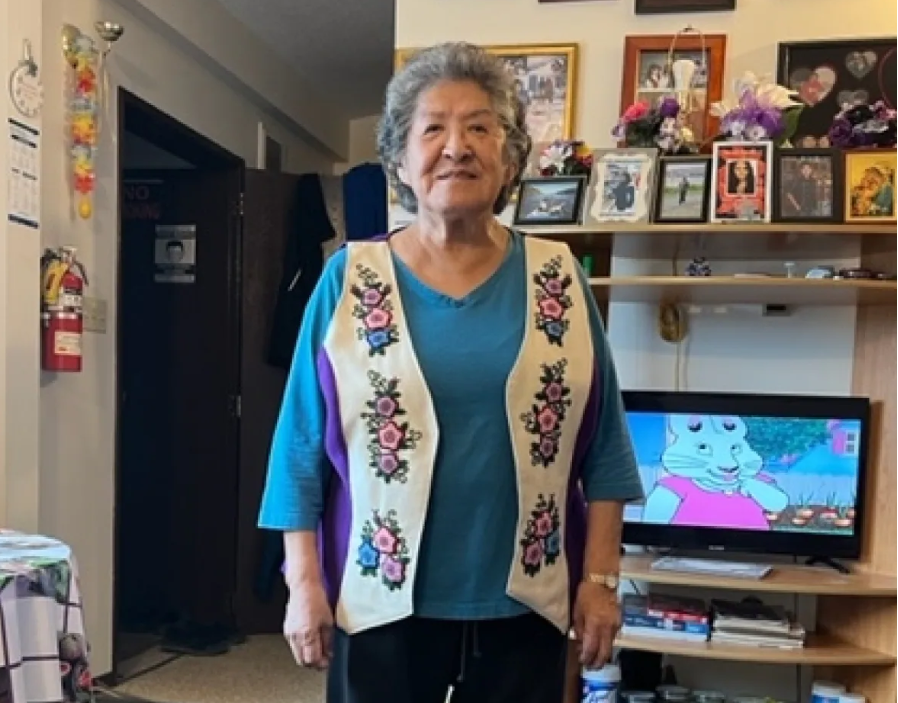
Pope Francis will be in Edmonton July 25 and 26 to meet with Canada’s Indigenous peoples and apologize in person for the abuse suffered in residential schools at the hands of the Catholic Church.
Brown will be one of 40 delegates from 18 N.W.T communities being sent by the Diocese of MacKenzie Fort-Smith for the papal visit. Many others from the region are also planning to make the trip.
But Brown says she would’ve found a way to see the pope in person, one way or another. For her, getting the chance to be there in person is an opportunity to let go of some of the trauma.
“I just hope that this time now will be the time when he’s going to say ‘I’m sorry,'” said Brown. “Say it by his mouth, with his heart and really feeling it for us, what has happened. Because it’s almost like something is killing us and we need that thing to be gone.”
Indigenous governments have recognized how important the event is to many people and are providing travel assistance to help ensure all who want to are able to attend.
The Tłı̨chǫ Government is providing air travel from Whatì, Gamètì, and Wekweètì to Yellowknife for Tłı̨chǫ elders planning to go to Lac Ste. Anne for the papal visit. It is also providing buses for elders and residential school survivors from Behchokò.
The Gwich’in Tribal Council will provide funding to help Gwich’in participants attend the papal visit.
Over one in six community members of Colville Lake, N.W.T., pop. 129, is planning to go, according to Wilbert Kochon, the Grand Chief of the Sahtu Region.
Mother and daughter trip
Descendents of residential school survivors also plan to take in the papal visit.
Susan Enge and her 25-year-old daughter, Nicole Enge, will travel to Edmonton from Fort Smith, N.W.T., this coming weekend.
As second- and third-generation residential school survivors, they’ve seen the impact of residential schools on Susan’s mother and other relatives, said Susan Enge.
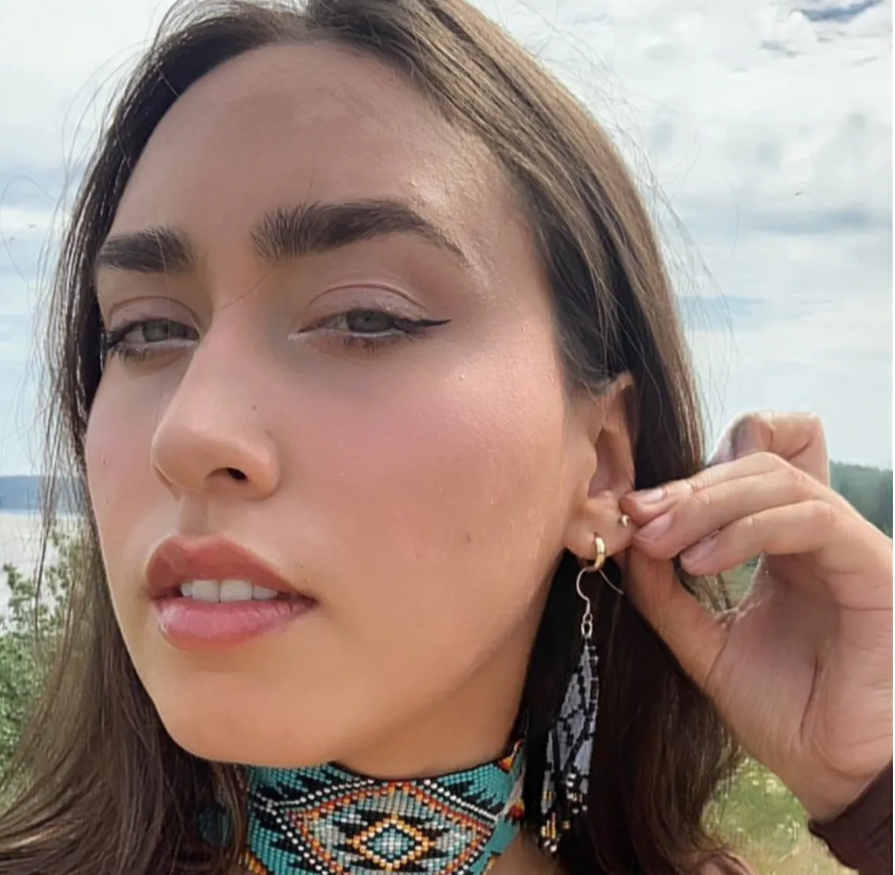
She calls the visit “a way for us to reconcile a path that was filled with hurts.”
The Enge family is a part of the North Slave Métis Alliance, and also have ancestors in the South Slave Region.
Nicole Enge represents a younger generation of Métis who have suffered intergenerational trauma as a result of residential schools.
“You see how the trauma trickles down the family … When you see that growing up, it just impacts you in a totally different way,” said Nicole Enge. “Like you weren’t there physically, but you still feel that within your genes. You see that in your family.”
She says she’s seen a lot of disillusionment among her peers over the years.
“I’m a bit skeptical but I would say I’m also hopeful,” said Nicole Enge.
“There’s a lot of anger having the first apology [from Prime Minister Stephen Harper] way back in 2008 and it’s been over 10 years and there’s been so much change since then … and that’s really set in motion this apology now.”
When she meets the pope, Nicole Enge will be wearing a beaded necklace made by an elder who is a residential school survivor and beaded earrings made by a young Yellowknife artisan to reflect the two different perspectives of those affected by residential schools.
“It reinforces the liveliness of our culture. We endured all of these monstrosities and we have overcome, we’ve thrived, we’ve come back from the brink of genocide … wearing that jewlery symbolizes that beyond words,” she said.
Susan Enge said seeing the papal apology will offer closure for her family.
“I do see a resolving in my mind and my heart of what did take place,” said Susan Enge. “And I hope that my mother who has now passed away and all my relatives who did suffer are happy to see this is happening.”
Related stories from around the North:
Canada: Pope says he hopes Canada visit will help heal ‘evil’ done to Indigenous people, CBC News
Finland: Psychosocial support for Sami proposed ahead of Finland’s Truth and Reconciliation Commission, Yle News
Greenland: Greenland, Denmark initiate investigation into past relations, Eye on the Arctic
Norway: Can cross-border cooperation help decolonize Sami-language education, Eye on the Arctic
Sweden: Sami in Sweden start work on structure of Truth and Reconciliation Commission, Eye on the Arctic
United States: Alaska reckons with missing data on murdered Indigenous women, Alaska Public Media.


